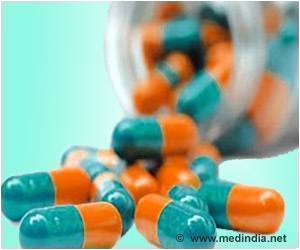- A cholesterol-lowering vaccine could turn out to be an effective and reliable alternative to statins
- The vaccine known as AT04A reduced the total amount of cholesterol by 53%
- AT04A enables the immune system to attack one of the body’s own proteins that increases cholesterol levels
The Need to Lower Cholesterol
High levels of low-density lipoprotein (LDL) or bad cholesterol can increase the risk of heart disease and stroke. Poor diet and lifestyle are some of the major factors that contribute to high cholesterol levels. Fat deposits in the heart and blood vessels are caused by atherosclerosis (build-up of plaque in the arteries).AT04A - Cholesterol-Lowering Vaccine
An enzyme called PCSK9 (Proprotein convertase subtilisin/kexin type 9), plays a key role in increasing the levels of LDL cholesterol in the blood. LDL cholesterol is also known as the bad cholesterol as it increases the risk of heart disease and stroke.The vaccine helps the body's immune system to attack PCSK9 enzyme and reduce the build-up of LDL cholesterol in the blood.
The cholesterol-lowering vaccine called AT04A was experimented in mice. The research team fed the mice with high-fat, Western-style food to increase cholesterol levels, which leads to the development of atherosclerosis. The AT04A vaccine was injected into the mice.
The findings showed that the AT04A cholesterol-lowering vaccine
- Reduced the total amount of cholesterol by 53%
- Reversed atherosclerotic damage to blood vessels by 64%
- Reduced biological markers of blood vessel inflammation by 21-28%
Dr Günther Staffler, chief technology officer at AFFiRis (the company that developed AT04A) and one of the authors of the study, said, “AT04A was able to induce antibodies that specifically targeted the enzyme PCSK9 throughout the study period in the circulation of the treated mice.”
The AT04A vaccine could have a long-lasting effect because the concentrations of the antibodies remained high at the end of the study.
"If these findings translate successfully into humans, this could mean that, as the induced antibodies persist for months after a vaccination, we could develop a long-lasting therapy that, after the first vaccination, just needs an annual booster. This would result in an effective and more convenient treatment for patients, as well as higher patient compliance," said Dr Staffler.
How Does AT04A Vaccine Lower Cholesterol?
The PCSK9 protein, which is produced in the liver, locks on to LDL cholesterol receptors. This reduces their ability to get rid of LDL cholesterol from the blood. When the vaccine is injected, AT04A causes the body to produce antibodies that block the function of PSCK9. This increases the activity of the LDL cholesterol receptors.AT04A is considered a vaccine due to the way in which it is administered. But the difference between a conventional vaccine and AT04A is that vaccines usually induce antibodies that are specific to bacterial and viral proteins which are foreign to the body. However, AT04A induces antibodies against a protein that is produced by the body. “This is an immunotherapeutic approach rather than a vaccine approach,” said Dr. Staffler.
The findings of the study are published in the European Heart Journal.
In 2015, a phase I clinical trial of the cholesterol-lowering vaccine was started by a research team at the Department of Clinical Pharmacology, Medical University of Vienna, Austria. The trial that involves 72 healthy people to assess the safety and activity of the vaccine is expected to complete at the end of this year.
Reference:
- Christine Landlinger, Marianne G. Pouwer, Claudia Juno, José W.A. van der Hoorn, Elsbet J. Pieterman, J. Wouter Jukema, Guenther Staffler, Hans M.G. Princen, Gergana Galabova. The AT04A vaccine against proprotein convertase subtilisin/kexin type 9 reduces total cholesterol, vascular inflammation, and atherosclerosis in APOE*3Leiden.CETP mice. European Heart Journal, (2017); DOI: 10.1093/eurheartj/ehx260
















